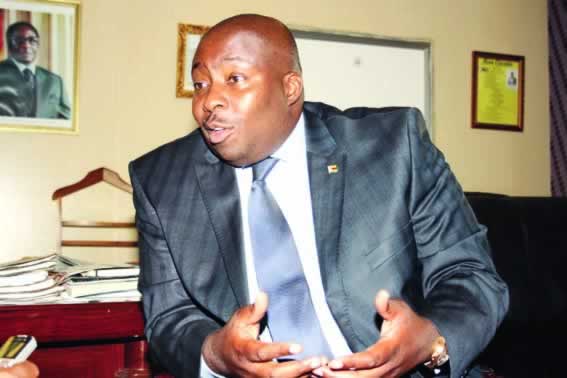Foreign retailers not banking: NIEEB

Kudakwashe Pembere and Tafadzwa Ndlovu
AT least 90 percent of applicants seeking indigenisation compliance certificates in sectors reserved for indigenous Zimbabweans under the Indigenous and Economic Empowerment Act do not have bank accounts, confirming suspicions the bulk of the country’s cash is being smuggled out of the country.
This startling revelation was discovered during the processing of the applications by both local and foreign business people for the certificates in compliance with a May 17, 2013 Government Gazette regulation making it mandatory for all local and foreign firms in “reserved sectors” to apply for indigenisation compliance certificates by January 1, 2014.
This scenario could help land credence to assertions that an estimated US$2,5 million to US$4 billion could be circulating outside the formal banking system considering that a huge proportion of Zimbabwe’s economy is now informal following the decade-long economic crisis that led to the demise of a good number of large corporate. The revelations also raises eye brows about the contribution of foreigners to the worsening liquidity crisis in the economy in that if non-indigenous businesses operating in the reserved sectors are not banked, they could be siphoning proceeds from their businesses out to foreign havens or have cash stashed in their homes since most foreigners in reserved sectors lack proper documentation required for formal bank account opening.
NIEEB chief executive Mr Wilson Gwatiringa told The Herald Business that the process of issuing out the certificates of compliance was bringing out positive results.
“This programme is bringing out benefits that were not even talked about as these people are being formalised into the economy which hitherto was not the case.”
“These operators where operating without bank accounts, they are (also) not registered with the Zimbabwe Revenue Authority.”
“This means they are not paying tax and that their money is not being accounted for in the banking system,” he said.
Mr Gwatiringa also said that NIEEB wants to ensure that there is order in the reserved sectors particularly the retail sector.
“We are directing that all the applicants must have bank accounts and must be registered with the tax authority and provide a tax clearance certificate so that they are proper business people who contribute to the economy in a manner that it is expected and that they must pay tax and the funds they handle must pass through the banking system,” he said.
Bankers Association of Zimbabwe president Mr George Guvamatanga said that while restoring depositors’ confidence is a challenge, which has also discouraged some individuals and small enterprises from banking their funds, the financial industry is committed to the growth of deposits. “We know it is a challenge and we are working to ensure that something is done for the benefit of depositors,” he said.
According to the Finscope SMEs survey launched in June last year, up to US$4 billion is thought to be circulating outside the formal banking system.
The study also noted that the bulk of Zimbabwe’s urban population is involved in the informal sector, accounting for about 24 percent of the country’s US$10 81 billion gross domestic product which remains largely unbanked.
Furthermore the SMEs sector was found to have created nearly six million jobs in the country and generates about US$7,4 billion annually, but the money rarely finds its way into the formal banking system.










Comments